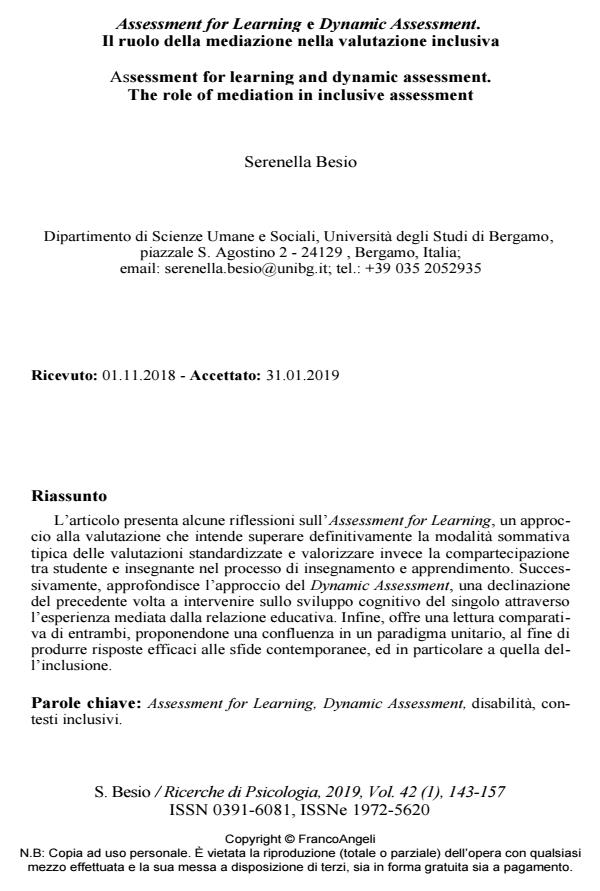Assessment for learning and dynamic assessment. The role of mediation in inclusive assessment
Journal title RICERCHE DI PSICOLOGIA
Author/s Serenella Besio
Publishing Year 2019 Issue 2019/1
Language Italian Pages 15 P. 143-157 File size 201 KB
DOI 10.3280/RIP2019-001009
DOI is like a bar code for intellectual property: to have more infomation
click here
Below, you can see the article first page
If you want to buy this article in PDF format, you can do it, following the instructions to buy download credits

FrancoAngeli is member of Publishers International Linking Association, Inc (PILA), a not-for-profit association which run the CrossRef service enabling links to and from online scholarly content.
The article presents some reflections on Assessment for Learning, an ap-proach to evaluation that aims at definitively overcoming the summative modal-ity typical of standardized assessments and at encouraging partnership between student and teacher within the teaching and learning process. Subsequently, it deepens the Dynamic Assessment approach, a variation of the previous one, aimed at intervening on the individual’s cognitive development through the expe-rience mediated by the relationship. Finally, it offers a comparison among them, and proposes their confluence in a unique paradigm, in order to produce effec-tive educational answers to contemporary challenges, particularly to the goal of inclusion.
Keywords: Assessment for Learning, Dynamic Assessment, disability, inclusive contexts.
Serenella Besio, Assessment for Learning e Dynamic Assessment. Il ruolo della mediazione nella valutazione inclusiva in "RICERCHE DI PSICOLOGIA " 1/2019, pp 143-157, DOI: 10.3280/RIP2019-001009